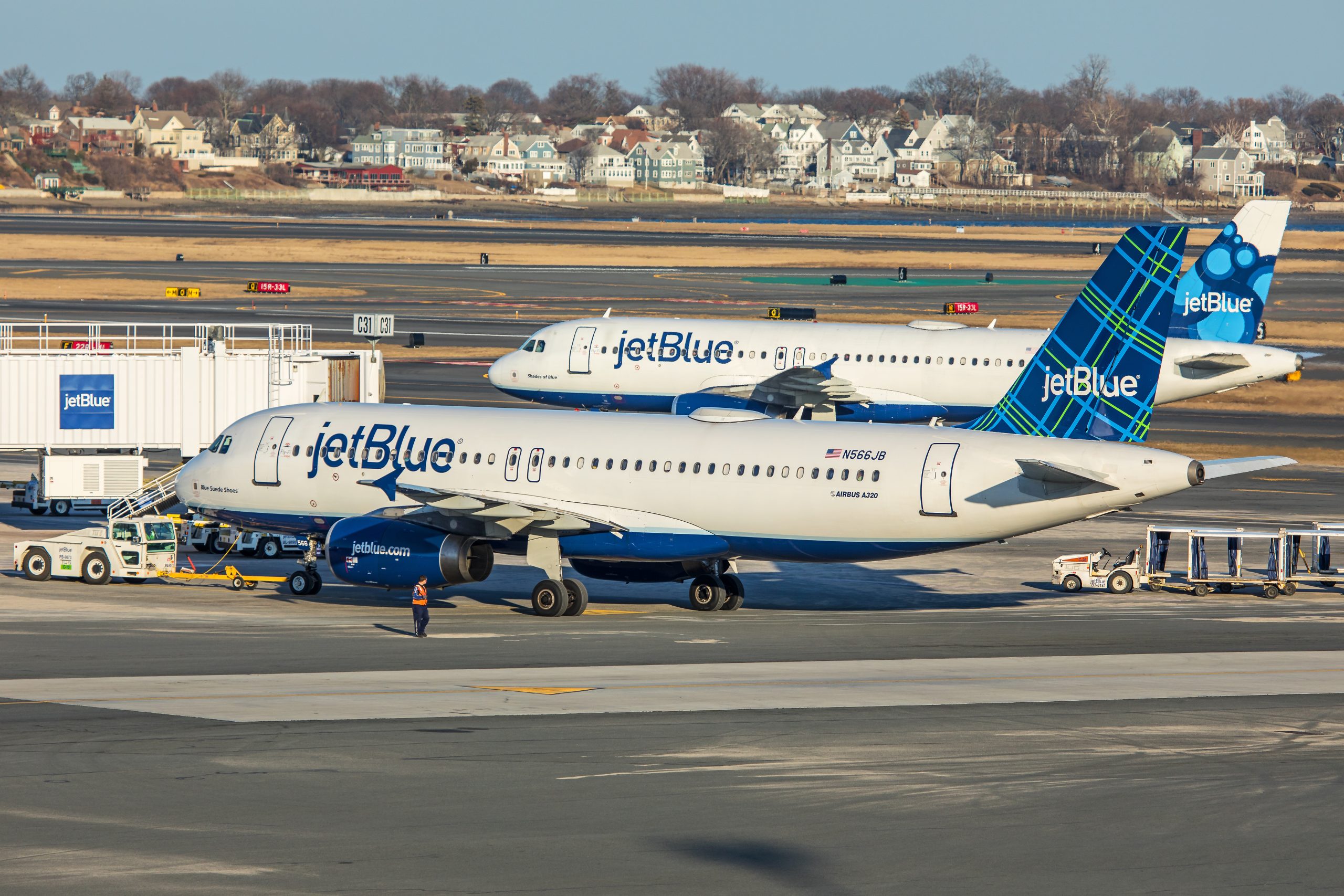
JetBlue Reveals Diminished First Quarter Earnings
On Tuesday, JetBlue announced that it has adjusted its annual revenue forecast. The carrier announced that its revenue will be…

A passenger cabin is converted for cargo on an Air Canada 777-300ER (Photo: Air Canada)
The impact of the COVID-19 pandemic has not spared Canada and its air transport industry. Air Canada has reduced its capacity by 85-90 percent during the second quarter of 2020 compared to the same period in 2019. During the month of April, the Montreal-based carrier is planning to serve a reduced domestic network and a small number of transborder o and international destinations.
According to RoutesOnline data, Air Canada will serve 26 transborder routes and 13 international services, which will be increased to 20 in May.
While the passenger market is experiencing this extraordinary drop in demand, there is still a need for international cargo, as countries struggle to receive emergency material to fight the epidemic. For this reason, Air Canada has decided to reconfigure three Boeing 777-300ER aircraft to give them additional cargo capacity. The carrier has already announced the completion of the first conversion with the following two to be completed shortly.
Most commercial carriers nowadays do rely heavily on belly hold capacity of passenger aircraft for their cargo operations, with full-cargo aircraft being less common for non-specialized operators.
“Bringing critical medical and other vital supplies rapidly to Canada and helping distribute them across the country is imperative to combating the COVID-19 crisis. The transformation of the Boeing 777-300ERs, our largest international wide-body aircraft, doubles the capacity of each flight and will enable more goods to move more quickly,” said Tim Strauss, Vice President – Cargo at Air Canada in a press statement released by the airline.

Air Canada announced that they’d be converting several 777-300ERs to cargo-haulers (Photo: Air Canada)
The conversions are being carried out by Avianor, an aircraft maintenance and cabin integrator specialist, which is based at Montreal-Mirabel airport. The solution envisaged by the company requires for the 422 seats to be removed and cargo loading zones for lightweight boxes to be designated. The boxes will most likely contain medical equipment and will be restrained with cargo nets.
Each reconfigured aircraft can carry up to 89.63 tonnes, the equivalent of up to 9 million medical masks. The conversion procedure has been developed, produced and implemented in six days and has been certified and approved by Transport Canada.
“The rapid transformation of some of our aircraft to meet cargo demand reflects our ability to maximize our fleet assets quickly when these aircraft would otherwise be parked. Air Canada’s engineering team worked around the clock to oversee the conversion work, and with Transport Canada to ensure all work was certified as tasks were completed. The next two aircraft are on track to be completed and will be in operation within the coming days,” said Richard Steer, Senior Vice President, Operations at Air Canada in a press release.
Air Canada has operated 40 all-cargo flights since March 22 and plans to operate up to 20 all-cargo flights per week using a combination of the three newly converted Boeing 777s, Boeing 787s, and Boeing 777s, in addition to current scheduled flights to London, Paris, Frankfurt, Hong Kong.
Vanni fell in love with commercial aviation during his undergraduate studies in Statistics at the University of Bologna, when he prepared his thesis on the effects of deregulation on the U.S. and European aviation markets. Then he pursued his passion further by obtaining a Master’s Degree in Air Transport Management at Cranfield University in the U.K. followed by holding several management positions at various start-up carriers in Europe (Jet2, SkyEurope, Silverjet). After moving to Canada, he was Business Development Manager for IATA for nine years before turning to his other passion: sports writing.
Receive a daily dose of the airline industry's top stories along with market insights right in your inbox.

On Tuesday, JetBlue announced that it has adjusted its annual revenue forecast. The carrier announced that its revenue will be…

Royal Air Maroc and Safran have deepened their collaboration in aircraft engine maintenance. In celebration of its 25th anniversary, Safran…

The importance of the North American market to Fiji Airways has been further highlighted with the announcement of an interline…



